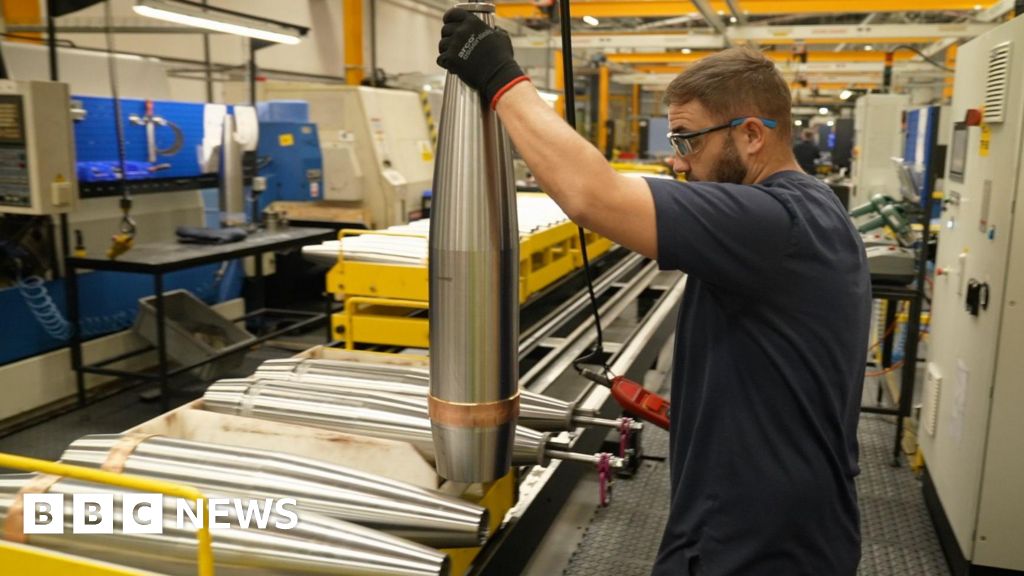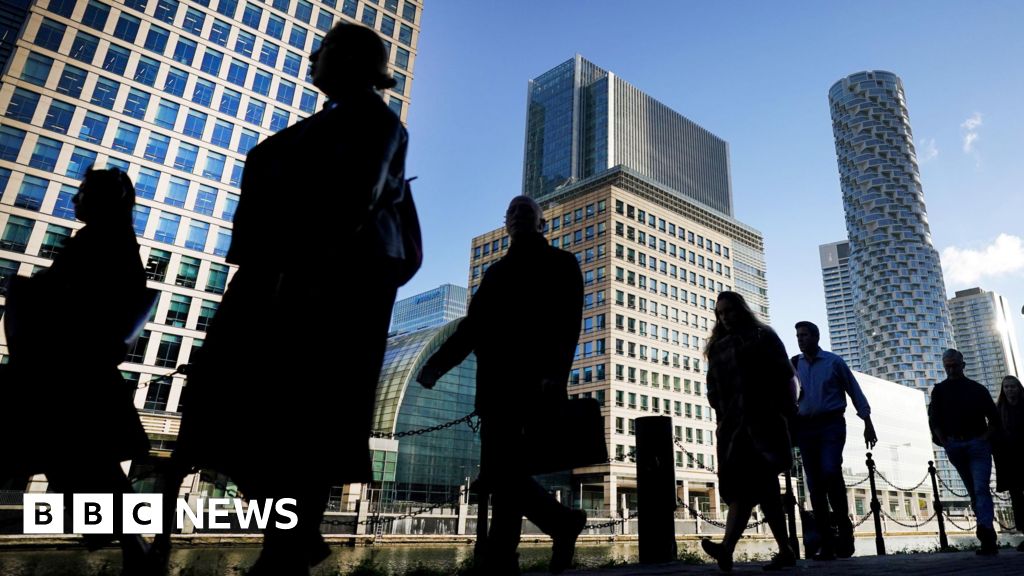ARTICLE AD BOX
There is no room for big spending announcements for hard-pressed public services in this month's Budget, the Institute for Fiscal Studies says.
The influential think tank has published new analysis, suggesting borrowing will be lower than forecast.
But the IFS says if the chancellor hopes to balance the government's finances, he will still have to keep a tight rein on spending.
That's despite his planning the biggest tax rises for more than 25 years.
Mr Sunak is due to deliver the next Budget on 27 October.
"Rishi Sunak, a Conservative chancellor, is presiding over an increase in the tax burden to record levels in the UK and an increase in the size of the state (public spending as a fraction of national income) to levels not seen since the days of [Margaret] Thatcher," said IFS director Paul Johnson.
"Yet the combined effects of ever-growing spending on the NHS, and an economy smaller than projected pre-pandemic, mean that he is still likely to be short of money to spend on many other public services," he said.
Mr Johnson said that meant "little or no scope" to increase spending on things such as local government, the justice system and further education, which have seen sharp cuts over the last decade.
Spending on services other than health, such as defence, schools and aid, might also have to increase by less than Mr Sunak was planning pre-pandemic, the IFS said.
Mr Johnson said the chancellor would be "hoping against hope" that the economy performed better than expected over the next few years, pushing up tax revenues that would "help to dig him out of what still looks like a fair-sized hole".
Lower borrowing
The IFS produces analysis of the country's finances in its Green Budget every year. Like a government green paper, the aim is to inform and provoke discussion around budgetary decisions.
The report highlights the UK's strong economic recovery this year, in the wake of the vaccine roll-out, meaning that borrowing this year could be more than £50bn lower than was forecast in March. But it says less rapid growth after this year's bounce back would mean the public finances improve more slowly in the years to come.
Anyone making forecasts like these a year ago would have been laughed at and called a crazy optimist.
The amount the government is expected to borrow this financial year is £50bn less than was predicted even just back in March.
That suggests those arguing against cutting public spending too soon, for the sake of reducing that borrowing, were right.
In a pandemic, they argued, to prioritise sorting out the public finances before securing the economic recovery was putting the cart before the horse.
In the meantime, the vaccine-led recovery has brought tax money rolling into the Treasury much faster than was expected.
With 7% economic growth predicted this year and borrowing dropping rapidly, we can now see how quickly, when the economic horse is accelerating, the public finance cart comes trundling behind.
Christian Schulz, director of European Economics at investment bank Citi, which collaborated on the Green Budget, said the global economic outlook had improved.
However, the UK economy was still likely to be 4% short of its pre-pandemic trajectory at the end of 2021, he said.
"The medium-term recovery also remains far from secure," said Mr Schulz. "Instead, an uneven rebound to date points to a more profound Brexit- and Covid-related reconfiguration in the years ahead.
The Green Budget analysis also found:
- Borrowing for 2022-23 onwards should continue to be at least £20bn lower than forecast in the March 2020 Budget
- The government's budget should return to surplus from 2023-4
- However, uncertainty is "incredibly high" - the economy could grow either more quickly or more slowly than currently forecast - meaning tax plans might have to change
- The costs of financing government debt will be £15bn higher this year, and in future years, than was forecast in the March 2020 Budget
- There may be more "wiggle room" by 2024-25 if economic growth is strong, but there will still be big demands on government spending, including the NHS, the fallout from Covid, the levelling-up agenda, social care and the transition to a lower carbon economy
The IFS suggested that in order to cope with long-term pressures on spending, the chancellor might find he needs to raise taxes further, on top of the 1.25% health and social care levy announced last month.
For the levy to meet future spending demand in those areas, the IFS estimates it could need to more than double to 3.15% by the end of this decade.

 3 years ago
112
3 years ago
112








 English (US) ·
English (US) ·